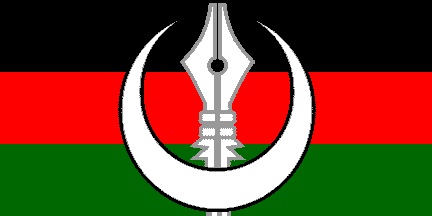Sudan’s NUP unconvinced about Bashir’s call to prepare for 2015 elections
October 29, 2013 (KHARTOUM) – The opposition National Umma Party (NUP) has described president Omer Hassan Al-Bashir’s call for the political forces to prepare for the upcoming elections as “hard to take” and said that the ruling National Congress Party (NCP) is not qualified to prove its legitimacy through elections.
 In his address before the opening of the parliament’s eighth session on Monday, Bashir renewed his call for the political parties to participate in the 2015 general elections, saying that it is the only means for change and reform and promised to conduct free and fair polls.
In his address before the opening of the parliament’s eighth session on Monday, Bashir renewed his call for the political parties to participate in the 2015 general elections, saying that it is the only means for change and reform and promised to conduct free and fair polls.
The opposition proposes the formation of a national unity government to run the country during an interim period followed by elections after settlement of regional conflicts and agreement on constitutional principles.
But the government rejects this saying there is no need for a transitional regime as the president and the parliament were elected in the April 2010 general elections that were monitored and endorsed by regional and international observers.
The NUP’s secretary of foreign relations, Nageeb Al-Khair Abdel-Wahab, in a press release on Tuesday called on Bashir to dissolve the government and draft an interim constitution which secures freedoms and paves the way for a constitutional assembly to draft a permanent one and hold free and fair elections.
He said that the NCP is not qualified to use elections as means to prove its legitimacy since it seized power through a coup d’état in 1989.
“Military tanks do not grant NCP the legitimacy to organize elections which could put the country on the path of political transformation and opens new horizons for resolving the current crisis”, Abdel-Wahab said.
He challenged the NCP to prove its claims of having the support of the majority of the Sudanese people by agreeing to transitional arrangements which would allow for free and fair elections.
The NUP official went on to demand the NCP pay the cost of democratic transformation by holding the 2015 vote under the supervision of a transitional government which would prevent the ruling party from exploiting the state’s resources in the elections.
He stressed that the recent splits within the NCP is the natural outcome of the intellectual sterility and refusal to renew, saying that when a political party resists change it “either splits or fades away”.
Earlier this week a group of NCP reformists led by the former adviser to president Bashir and the NCP’s ex-majority leader in parliament, Ghazi Salah Al-Deen Al-Attabani, declared their intention to leave the party and form a new one that would “bring new hope to Sudan”.
Abdel-Wahab further called upon Sudan’s opposition forces to form an interim government and parliament including all political forces and hold a comprehensive national conference to discuss the current crisis and offer solutions and adopt a permanent constitution followed by parliamentary and presidential elections.
In the same context, a senior official at Sudan’s National Elections Commission (NEC) called upon the political parties and civil society organization to agree on an election law and early preparedness for the elections, pointing that the constitutional organs mandate expires on April 2015 which makes it imperative for new ones to substitute them before that date in order to avoid a constitutional vacuum.
According to Sudan’s official news agency SUNA, the deputy director of the NEC, Mukhtar Al-Asam, called upon political parties to embark on forming their election committees at the national and states levels and hold their primaries in order to elect their candidates for the 2015 elections.
He said the NEC has made several observations on the 2010 election law which need to be put into consideration in the new law in order to improve the electoral process in a manner which guarantees fair representation of voters.
The NEC official further pointed that they held seminars and lectures with the participation of the political parties and made recommendations which gained the satisfaction of most of the participants.
He added that recommendations included reviewing the national parliamentary elections which are based on the geographical representation without taking into account the health, education, environmental and agricultural services requirements of the geographical constituencies because the responsibility for these services went to the states’ governments.
Al-Asam pointed that the national parliament is responsible for foreign policy, defense, strategic plans, and national issues and does not look into issues at the state level.
“The parliament must be based on a national proportional representation, not state proportional one”, he added
(ST)
